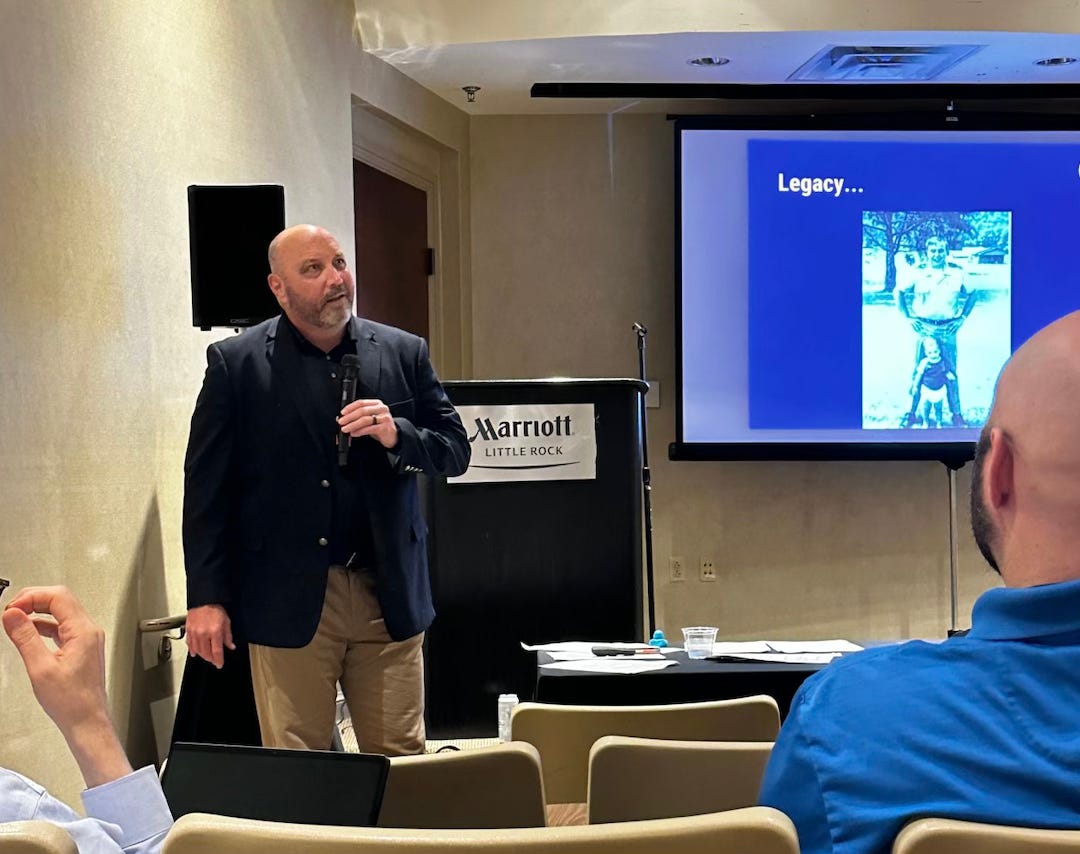Noise Behind The Badge
Leadership transcends every profession and way of life, and one of the more enjoyable aspects of my work is speaking to a diverse range of audiences. I recently spoke at the International Conference of Police Chaplains.
I closed the session by reading and discussing Psalm 55:3. A few attendees requested the transcript, so I have placed the audio and text below.
“Because of the noise of the enemy, because of the oppression of the wicked.
For they bring down trouble upon me, and in anger they bear a grudge against me.”
David wrote these words not as a king seated on a throne, but as a man under pressure, surrounded by enemies, and suffocating under betrayal.
And if that doesn’t describe the emotional reality of our officers today, I don’t know what does.
Because “the noise of the enemy”
Chaplains, that’s what your officers are wading through every day.
It’s the relentless criticism from people who’ve never done the job. It’s the media distortion and lies, the second-guessing, the way our culture sometimes paints them as villains before anyone hears the full story.
And the “oppression of the wicked”
That’s not poetic language for them. They’ve seen it and held it. Been covered in it.
They respond to domestic violence, murder, addiction, abuse, despair, and then go home to their families, expecting to forget all they have seen.
David says, “They bring down trouble upon me…”
Isn’t that exactly what trauma does? It descends. It sticks. It doesn’t ask permission.
And many officers, unable to speak about it or process it, simply carry it in silence.
And then “In anger they bear a grudge against me.”
Chaplains, you and I both know how hard that hits. We’ve seen the despair in the eyes of good men and women who feel like their uniform has made them a target.
They didn’t change, but the world around them did.
And the pain of that, the moral injury of it, is real.
As chaplains, you are called into that pain, not to fix it, but to be present in it.
You stand in the gap between trauma and healing. Between anger and grace. Between despair and hope.
David didn’t sanitize his emotions. He laid them bare before God. And that permits your officers to do the same.
But they need a place, and often a person, to help them do that.
That’s where you come in.
Because sometimes, the most courageous thing you can do as a chaplain isn’t preaching a sermon, but it’s pulling up a chair.
It’s sitting quietly beside someone whose armor is cracking. It’s reminding them that courage doesn’t mean they don’t feel. It means they keep showing up despite what they feel.
It means reminding them that God sees what others miss. He’s not just present in the pulpit. He’s in the patrol car. Not just in Sunday prayers, but in Monday shootings, Tuesday trauma, and Wednesday funerals.
So here’s the challenge and the encouragement:
Be the kind of chaplain who hears the noise behind the badge.
Who listens long enough for the real pain to surface.
Who speaks truth but only after listening with grace.
And never forget: you are not just a responder; you are a rescue line for a soul in a storm.
David cried out to God in Psalm 55. And our officers? Many don’t know how to cry out anymore.
But you can stand beside them and say:
“God hears. God sees. And God still shows up for warriors who are wounded.”
That’s what they need.
And that’s what you’ve been called to bring.
Let’s keep showing up for them.
And let’s keep reminding them:
They are not alone. Not on our watch. Not on God’s.
Dr. Travis Yates retired as a commander with a large municipal police department after 30 years of service. He is the author of “The Courageous Police Leader: A Survival Guide for Combating Cowards, Chaos & Lies.” His risk management and leadership seminars have been taught to thousands of professionals across the world. He is a graduate of the FBI National Academy with a Doctorate Degree in Strategic Leadership and the CEO of the Courageous Police Leadership Alliance.


